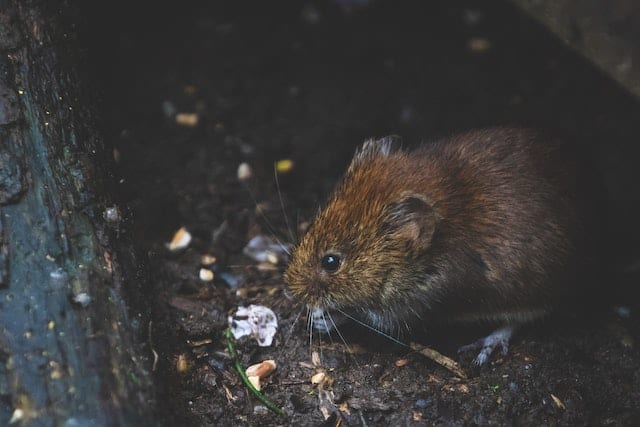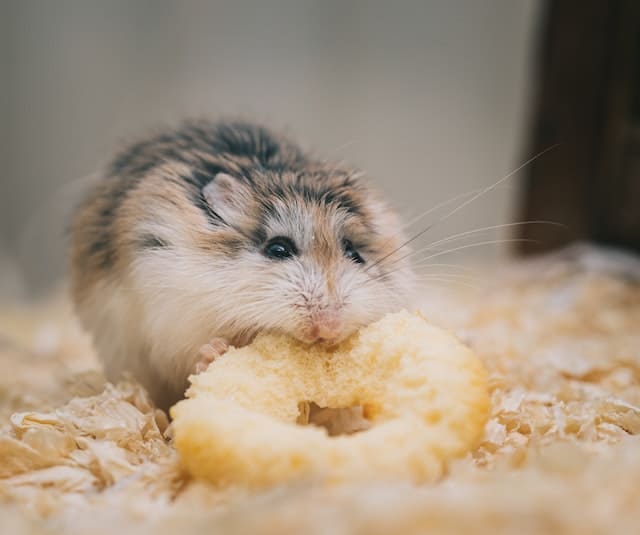Can Hamsters Eat Apples? A Nutritious and Tasty Treat
Yes, hamsters can eat apples, but in small amounts due to their high sugar content. Hamsters can enjoy apples as part of a balanced diet, but be sure to remove the seeds and core before feeding them to your furry friend.
It’s important to note that moderation is key, as excessive apple consumption can lead to diarrhea or weight gain. Providing a variety of fruits and vegetables, alongside a high-quality hamster pellet, will help ensure your pet’s nutritional needs are met.
Remember, always introduce new foods slowly and monitor your hamster for any adverse reactions.
Are Apples Safe For Hamsters?
Apples can be a healthy addition to a hamster’s diet. They are a good source of vitamin C, fiber, and antioxidants. These nutrients can help support a hamster’s immune system and overall health. While apples are generally safe for hamsters, there are some precautions to keep in mind. Firstly, it’s important to remove the seeds and core before offering an apple to your furry friend. The seeds and core contain small amounts of cyanide, which can be harmful to hamsters. Additionally, make sure to wash the apple thoroughly to remove any pesticides or chemicals that may be present on the skin. Organic apples are a good option as they are less likely to contain harmful residues.
| Hamster Size | Apple Portion Size |
|---|---|
| Roborovski Dwarf Hamster | Small bite-sized pieces |
| Syrian Hamster | 1 small slice |
| Dwarf Campbell Russian Hamster | Half of a small slice |
| Chinese Hamster | Small bite-sized pieces |
Health Benefits Of Apples For Hamsters
Apples are a nutritious treat that can be fed to hamsters in moderation. High fiber content in apples aids in digestion, preventing constipation and maintaining a healthy gut. The vitamins and minerals present in apples, such as vitamin C, promote overall health and support the hamster’s immune system. Apples are also a good source of antioxidants, which help to protect the hamster’s body against free radicals and reduce the risk of chronic diseases. Additionally, the water content in apples provides hydration for hamsters, ensuring proper bodily functions. It is important to note that apples should be given in small, bite-sized pieces, with the seeds and core removed to avoid choking hazards. Variety in a hamster’s diet is crucial, so apples can be a healthy and tasty addition that should be given as an occasional treat.
Best Ways To Feed Apples To Your Hamster
When it comes to feeding apples to your hamster, there are several best ways to ensure they enjoy this tasty treat. Fresh apple slices can be served as a standalone treat by offering them directly to your hamster. It is important to remove any seeds or core and wash the apple thoroughly before serving. Incorporating apples into a homemade hamster food mix can also be a great idea. You can chop apples into small pieces and mix them with other safe ingredients such as oats, dried fruits, and seeds. Additionally, there are apple-based treats available in pet stores that are specifically designed for hamsters. These treats may come in different forms such as apple sticks or apple-flavored pellets. Moreover, you can find simple apple recipes for hamsters online that can be quickly prepared at home.
Potential Risks And Allergies To Consider
When it comes to feeding apples to your hamster, it’s important to be aware of potential risks and allergies that could affect their health. One consideration is the presence of pesticide residues in non-organic apples. These residues can be harmful to hamsters when ingested, so it’s best to opt for organic apples to minimize the risk. Another factor to consider is the high sugar content of apples. While hamsters can enjoy small amounts of fruit as a treat, excessive sugar intake can contribute to weight gain and obesity. It’s essential to monitor their portion sizes and limit their consumption to maintain a healthy weight. In addition to the risks associated with pesticide residues and sugar content, some hamsters may develop allergies or sensitivities to specific components in apples. If you notice any unusual symptoms such as diarrhea, skin irritation, or respiratory issues after feeding them apples, it’s best to consult a veterinarian for advice.
How To Introduce Apples To Your Hamster’s Diet
Introducing apples to your hamster’s diet should be done gradually to ensure their digestive system adjusts well to the new food. Start by offering a small piece of apple and monitor your hamster for any adverse reactions such as diarrhea or bloating. If there are no negative symptoms, you can gradually increase the portion size over time. It’s important to note that apples should be given as a treat and not as a staple food in your hamster’s diet. Remember to consider the size of your hamster when determining the appropriate portion size. Too much apple can lead to weight gain or other health issues. It is always a good idea to consult a veterinarian for specific guidance and advice tailored to your hamster’s individual needs.
Other Fruits Suitable For Hamsters
| Fruit | Nutritional Value |
|---|---|
| Bananas | Provide potassium and vitamin C |
| Blueberries | Rich in antioxidants and vitamins |
| Strawberries | Contain fiber, vitamin C, and manganese |
| Watermelon | High water content and a source of vitamins A and C |
Frequently Asked Questions For Can hamster Eat Apples
What Fruits Can Hamsters Not Eat?
Hamsters should avoid eating certain fruits to maintain their health. These include citrus fruits, like oranges and lemons, as the acidity can upset their stomachs. Grapes and raisins are also harmful due to their high sugar content. Lastly, cherries and plums should be avoided as they contain pits that can pose a choking hazard.
What Fruit Is Healthy For Hamsters?
The fruit that is healthy for hamsters is fresh apples. They provide essential vitamins and fiber to support their overall health.
Can Hamsters Eat Cheese?
Yes, hamsters can eat cheese but in moderation. Cheese should be given as an occasional treat, as it is high in fat and can lead to weight gain. Be sure to choose low-fat options and small pieces to prevent digestive problems in your hamster.
What Is Poisonous To Hamsters?
Hamsters should avoid foods such as chocolate, onions, garlic, caffeine, alcohol, citrus fruits, and certain plants like rhubarb and ivy, as they are toxic to them. It is important to keep these harmful substances away from hamsters to ensure their well-being.
Are Almonds Safe for Hamsters to Eat?
Hamster almond eating tips: While almonds are a nutritious snack for humans, they should be given to hamsters sparingly. Almonds are high in fat and can lead to obesity in hamsters if consumed in excess. Ensure that almonds are raw and unsalted, as added seasonings can be harmful. Remember, moderation is key when feeding almonds to your furry friend.
Conclusion
Hamsters can safely consume apples as part of their diet, provided they are given in moderation. These fruits are packed with essential vitamins and minerals that support a hamster’s overall health. However, it is crucial to remove the apple seeds and core, as they can be harmful to your furry friend.
Additionally, always introduce new foods slowly and monitor your hamster’s reaction. Remember, a balanced and varied diet is key to keeping your hamster happy and healthy.



One Comment